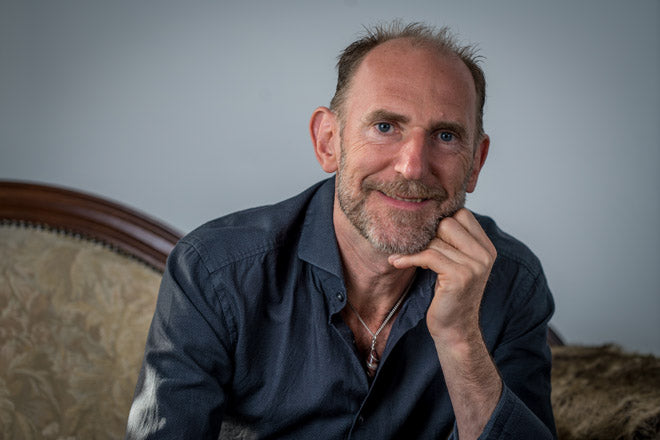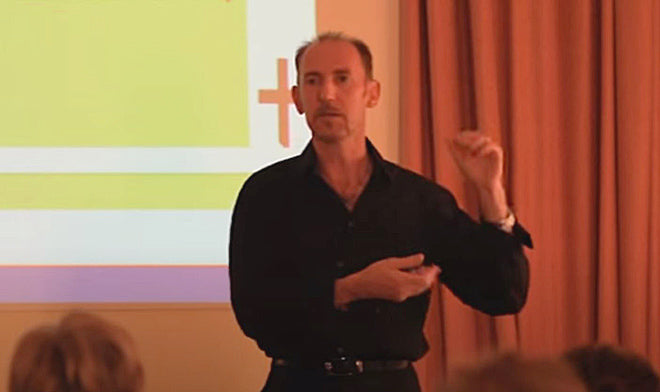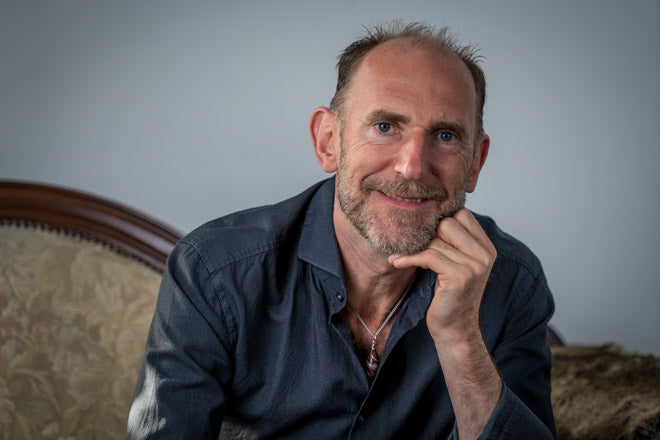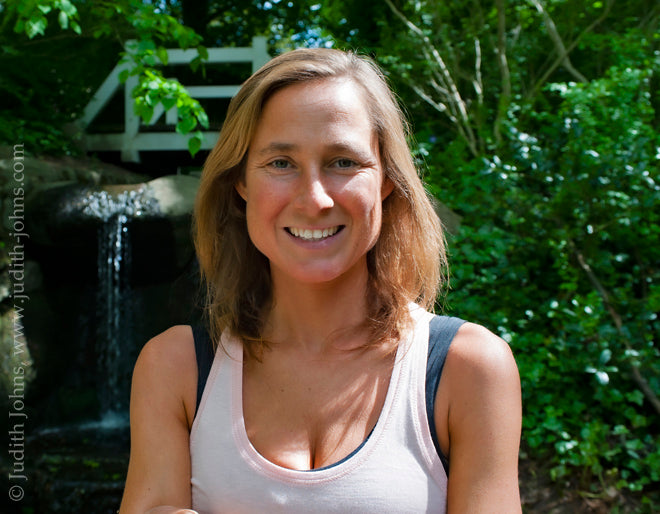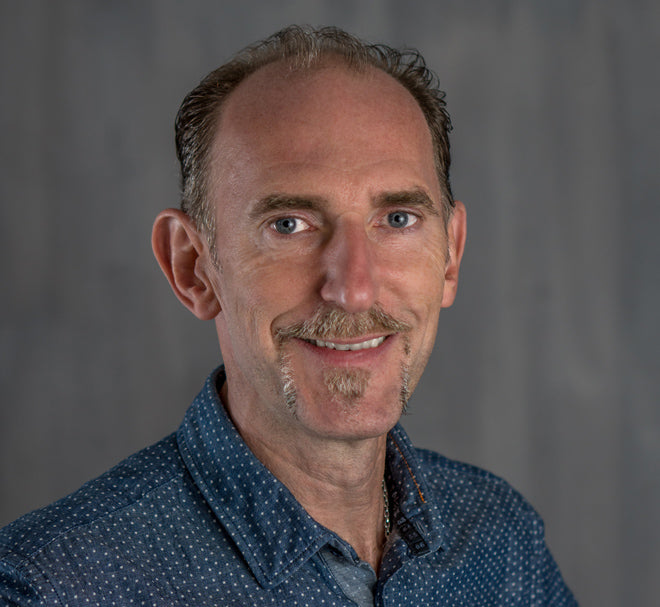
Interview with Andreas Winter: How diseases arise in the subconscious – and how we can easily free ourselves from them
Interview with Andreas Winter: How diseases arise in the subconscious – and how we can easily free ourselves from them
"Nowadays, all kinds of factors are blamed for the outbreak of various diseases. But we should ask: Why do some people get sick and others don't? The cause is usually stress, which is triggered by hidden fears and weakens the body's defenses. But if the stress is reduced, the symptoms of the disease disappear." In the new paperback edition of his standard work " Healing through Knowledge, " bestselling author Andreas Winter explains his successful approach, according to which long-standing complaints and blockages can be resolved in an instant by simply making people aware of the true causes and conveying the intelligent logic of a symptom.
At the beginning of your book – which is now being published as a paperback after five successful editions – you talk about the astonishing experience you had as a student of education: chronic illnesses can be cured through insight. What led you to this observation?
Winter: I was very excited when I read books about the successes that could be achieved through suggestions in hypnosis. Accelerating wound healing, eliminating pain, skin problems and excess weight, everything seemed possible. Encouraged by the existing literature, I began to collect my own experiences and, lo and behold, it was true. At first I worked a lot with people who wanted to get rid of phobias, excess weight or smoking. Later, people came to me who had developed organic diseases due to chronic stress. The healing does not happen through me, of course, but solely through the perception of the stress trigger as harmless.
In “Healing through Knowledge” you describe, among other things, your professional career and the influences that impacted the development of your approach. Which psychological, philosophical or therapeutic ideas have had a particular influence on you?
Winter: I was particularly impressed by the approaches of Alfred Adler, a pioneer of individual psychology. Adler was the first to describe the consequences of early childhood trauma on adult behavior patterns. That made a lot of sense to me at the time. Milton Erickson, the American reformer of hypnotherapy, also inspired me a lot because he did not work with direct hypnotic commands and suggestions, but rather with conviction, insights and conclusions. The work of Nobel Prize winner Ivan Pavlov on conditioning was particularly enlightening. In dog experiments, he showed that the reaction to one stimulus (salivation when food is given) can be transferred to another, independent stimulus (the sound of a bell). This ability to link is even more differentiated in humans: the ringing of the school bell can mean "break" on the one hand, and "start of class" on the other, and trigger a correspondingly differentiated reaction in the student - except after school, on weekends or during the holidays. A cigarette creates a completely different feeling in a non-smoker than in a smoker. Such connections, known as conditioning, can even develop in an unborn child when loud external noises, such as an argument between parents, are linked to the mother's stress hormones, which enter the embryonic blood via the umbilical cord. Babies who have experienced something like this are much more sensitive to being shouted at than others.
Your methodological approach is extremely successful, but unusually simple. Doesn't that put you in conflict with your colleagues or conventional medical practitioners?
Winter: No, quite the opposite! My courses and training sessions are attended by alternative practitioners, general practitioners, psychotherapists and even members of the pharmaceutical industry! I get a lot of support from all those who have had good experiences with my approach. With this tool, therapeutic success simply increases. However, it does take a certain amount of ideological openness to understand that our symptoms are usually caused by stress and do not occur by chance as a stroke of fate or due to genetics. In order to cause a symptom, there is always a trigger - and as I have shown, this is often hidden but not impossible to find. I know some doctors who now ask their patients: "What has stressed you the most recently and why?" Stress is to be understood here as increased pressure to adapt, and the only stress trigger is involuntary behavior: everything you do involuntarily or with which you are in dissonance or resistance causes stress. This imbalance between what we want and what we should do causes chemical messengers, the stress hormones, to be released in the body - and this in turn can damage the body in the long term. However, recognizing the actual causes of stress leads to an emotional reassessment of the perceived stimuli and reduces the stress - the symptoms disappear, illnesses heal.
The general understanding of medicine is that a real cure is unlikely, if not undesirable. How did this pessimistic attitude come about among today's followers of Hippocrates, and what are the consequences of this view?
Winter: That's a good question. In my opinion, it began in the 1920s, along with European industrialization, that psychotherapy, which had been quite promising up to that point but was still complicated and time-consuming, was suddenly replaced by rapid medication. It was the pressure of the performance-oriented society that preferred rapid symptom suppression to resolving the causes of illness so that workers could be ready for work again quickly. This led to an unconditional belief in medicine that was easy to exploit and was exploited by the medical industry, especially the pharmaceutical industry: people were made to believe that they were ill for no reason and they were prescribed an antidote without actually curing them. This antidote was designed in such a way that it had side effects that could also be cured with medication. In this sense, universities around the world are training doctors who are powerless in the face of the real cause of illness and therefore believe that curing is impossible. The permanent postponement of symptoms has become a lucrative perpetual motion machine. However, it is not just the patients who suffer from lifelong medical dependence, but also all our morally upright doctors who are denied therapeutic success and whose original professional motivation to heal people is reduced to absurdity. It is therefore high time that a doctor really heals again, quickly and permanently, in order to put right something that was messed up about 100 years ago for industrial interests.
The year 2020 will go down in history as the “Corona year”. In your opinion, how should the handling of the pandemic and the discussion about vaccinations or compulsory vaccination be assessed?
Winter: For me, the issue is not a health issue, but rather a political one. That's why I don't want to comment on it. The known hygiene rules have so far been sufficient for all infectious diseases. Humanity would have perished long ago from measles or chickenpox if it were otherwise.
“Knowledge” has helped many sufferers to “heal.” How does a doctor or therapist know when this approach is still effective and when conventional medical support is necessary?
Winter: If an organic dysfunction is clearly of physical origin, for example if the body has been damaged by poisons, radiation, pressure, injury or something similar, or if its symptoms are already in acute danger, then we need curative measures from a doctor. We need blood transfusions, bone splints, antidotes, electrolytes or surgery so that the person can recover. But if a symptom arises without a physical cause and also appears permanently, then it is very likely that the problem is not the body but underlying fears, i.e. thought patterns that encourage the release of stress hormones. In such cases, we only need to look: What made the person ill and what do they need to get well again? I think it is perfectly fine if acute medicine is used to help a person to be receptive again. Whether it is a headache tablet or cough expectorant, sedative or vitamins - everything is fine as long as you do not use it permanently and do not convince anyone that their health depends on taking it. If the course of the disease is not linear but shows exceptions, this is usually an indication of a psychosomatic issue. A broken leg is not healed one day and then injured again the next. In asthma or allergies, on the other hand, such irregularities do occur - a clear sign of psychosomatics: here the symptom is only a consequence of certain fear-motivated and stress-related metabolic processes.
You yourself have been confronted with a serious illness over the last two years and have had to spend several weeks in hospital. To what extent has your own approach helped you to overcome the illness? And have you gained any new insights in the process?
Winter: I had greatly enlarged lymph nodes, caused by a seminoma that was successfully removed. The tumors became threatening due to their constant growth, because they were constantly compressing my large blood vessels. In the summer of 2019, it was said that I only had a few weeks to live if I didn't undergo chemotherapy immediately. Since there was no time for natural regression with alternative methods, I decided to do it. It's no fun, and I wouldn't advise anyone to wait as long as I did. If you notice that something is wrong with your body, you should take care of it. Fortunately, I was able to support my body a lot with my own "toolbox" and shorten the treatment to just four weeks. In the summer of 2020, some of the lymph nodes enlarged again, and things got even tighter for me. I only weighed 53 kilos, had hardly any blood left, and was taking high doses of morphine for the pain. No time for natural cancer treatment. I had simply underestimated the seriousness of the situation. So I had another round of chemotherapy, one that was much more radical and longer than the first. When I found out what the so-called "high-dose chemotherapy" was doing to my body, I cried. You are brought to the brink of death. But I had no choice and agreed to the therapy, which I tolerated surprisingly well. The new tumors and the pain that had lasted for months had almost completely disappeared within a single day. I helped myself with self-hypnosis.
Medical help is a crutch, a tool for quickly combating symptoms. It is used when everything else is too late. The advantage is that you can carry on living as before without changing anything about yourself. The disadvantage is that if you don't combat the causes, the past catches up with you and symptoms can become chronic. There is no shame in getting ill - it can happen to anyone, including healers, gurus, therapists and coaches - but you can think about what made you ill and, once you have eliminated the source of stress, get well again quickly. In 2019, a chief physician told me that the cause of cancer is "bad luck". I was speechless. Surely he didn't study medicine just to write recipes for "bad luck"?
Many of the case studies presented in your books are based on traumatic experiences in early childhood that lead to unconscious misbehavior. How can we avoid these fear-based behavior patterns and thus prevent later illnesses?
Winter: The short answer is: let's not patronize or frighten our children! Children need to feel that they have an emotional home in which they are safe. Every problem should have a solution, and above all: parents should not be the ones who cause the problem. The pressure of expectations and excessive demands placed on immature parents are the real danger in our society. You can find the detailed answer in my paperback book " Too much education is harmful! ". In " Healing through knowledge " I show how to repair this damage.
Book tip:
Andreas Winter: Healing through knowledge. Deciphering the subconscious to resolve blockages and symptoms. Mankau Verlag, 1st edition March 2021, paperback, 12 x 19cm, 206 pages, 12.00 euros (D) / 12.40 euros (A), ISBN 978-3-86374-605-6.
Link recommendations:
More information about the paperback “Healing through Knowledge”
To the reading sample in PDF format
More information about the film DVD “Healing through Knowledge”
More about author Andreas Winter
Our social networks − for questions, criticism, suggestions

